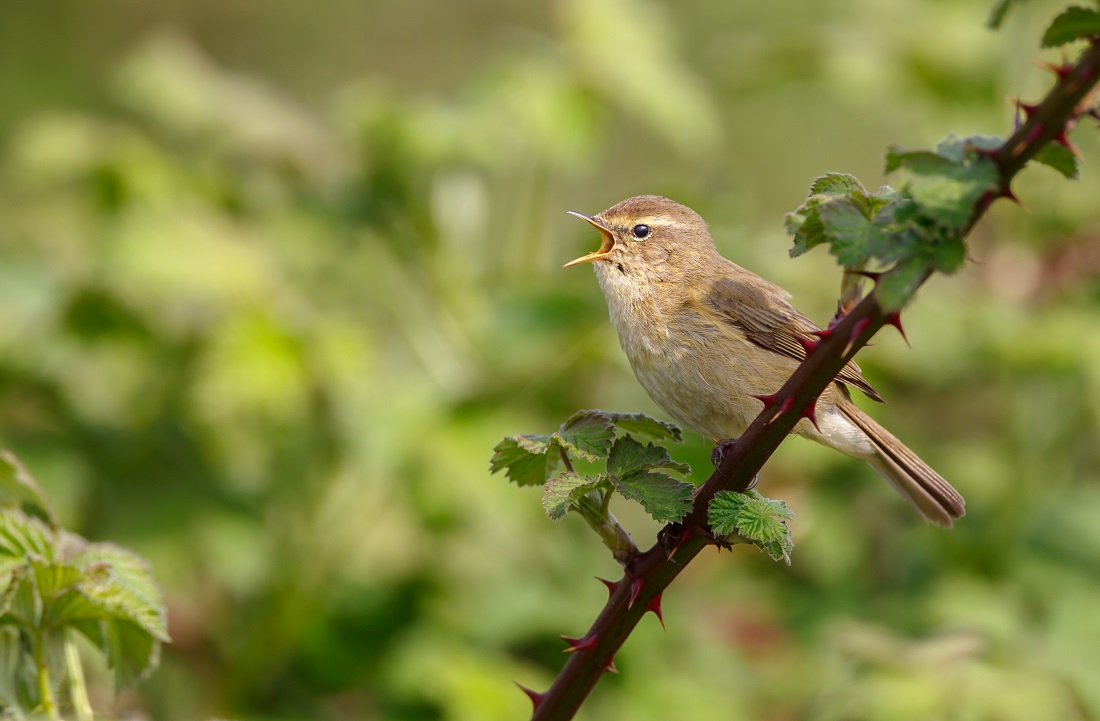
🎶 The True Meaning Behind Bird Songs: How Fairy-Wrens Unveil Their Authentic Selves Through Melody 🎶
Have you ever found yourself sitting under a tree, enjoying the delightful tunes of birds, and pondering what they might be conveying? It turns out—not only do birds sing to communicate—they might also be disclosing their genuine personalities. An innovative study conducted by researchers in Australia has discovered that a small, vibrant bird known as the superb fairy-wren sings tunes that showcase who they truly are!
🕊️ Introducing the Superb Fairy-Wren
The superb fairy-wren is a diminutive bird famed for its brilliantly bright blue plumage (particularly in males) and its enchanting, cheerful song. Indigenous to Australia, these birds are not only aesthetically pleasing—they are also remarkably expressive, both in their actions and the melodies they produce.
Dr. Diane Colombelli-Négrel, a scientist from Flinders University, along with her team, dedicated four years, from 2019 to 2023, to examining how these fairy-wrens communicate. Their findings transform our comprehension of bird songs—and, more broadly, animal communication.
🎤 Expressing Personality Through Song
Just as individuals have distinctive personalities—outgoing, timid, inquisitive, serious—birds possess the same variety. The research team uncovered that fairy-wrens convey these traits through their songs:
– Inquisitive and adventurous birds (termed “exploratory” in scientific jargon) performed complex tunes with greater variety.
– More aggressive or territorial birds favored simpler melodies, with fewer musical features.
This indicates that birds aren’t merely singing for the sake of it. They might be utilizing their vocalizations to convey significant personal insights—such as how brave or friendly they are.
🔬 How Did Researchers Discover This?
To connect song types with personality, scientists initially examined the birds’ actions through carefully structured experiments:
1. Birds were gently captured from their natural habitat.
2. Researchers watched how each bird acted in unfamiliar settings:
– Birds that explored every nook of a new cage were classified as “exploratory.”
– Birds that focused on their reflection in a mirror (mistaking it for a rival) were deemed “aggressive.”
3. After these assessments, the birds were released, and their melodies were recorded for several months in the wild.
Notably, superb fairy-wrens are among the few avian species in which both males and females sing intricate songs. “This made the research particularly engaging,” states Dr. Colombelli-Négrel, “since we could observe how both genders utilized songs to convey personality.”
🧠 Why Do Songs Indicate Personality?
What causes a daring bird to produce a more intricate song?
One plausible explanation is learning. More exploratory birds tend to encounter a diverse range of “song teachers”—mature birds they might mimic. Similar to how travelers acquire new languages during their adventures, these fairy-wrens absorb varied musical elements from different locations and other birds.
Young aggressive birds were also observed singing more complex melodies, likely because they are still experimenting and discovering their identities. As they mature and establish their personalities, their songs may simplify. In contrast, social or open-minded birds may continue to develop their songs over time.
💞 The Importance of Singing in Social Life
Why is this singing style significant? When fairy-wrens select partners, they likely pay close attention to those melodies. A song rich in variety could indicate an adventurous personality, whereas a brief, robust tune might signify a confident, territorial bird. Just like humans may be drawn to specific personality types, birds may prefer mates whose songs reflect qualities they find attractive or harmonious.
Dr. Colombelli-Négrel encapsulates it: “Our study reinforces the notion that both male and female birds can showcase their personalities while singing, which may play a vital role in mate selection.”
🌿 Implications of This Study for Science
This research, published in the April 2025 edition of Royal Society Open Science, opens thrilling possibilities. It demonstrates that animal communication—particularly through sound—is far more significant and personal than scientists previously believed. Rather than simply signaling alarms or demarcating territory, birds may be sharing their innermost selves.
And that’s truly remarkable.
🌍 What Can We Take Away?
The next time you stroll through a park or relax in your backyard and hear a bird singing, pay attention. That tiny melody may be narrating a tale of adventure, a hint of curiosity, or an affirmation of strength. The environment around us is vibrant with voices and personalities—each distinctive and expressive, much like ourselves.
So the next tune you catch? It could very well be a superb fairy-wren declaring, “This is who I am!”
📜 For Further Information:
Explore the complete study in Royal Society Open Science here.
💌 Interested in More Nature Discoveries?
Subscribe to Wild Science to receive the latest news on nature, wildlife, and the enigmas of the animal kingdom delivered right to your inbox.
Let the wilderness sing! 🎵